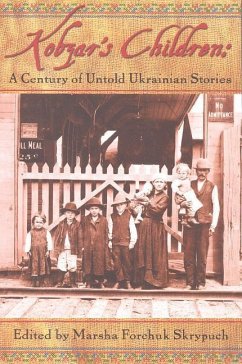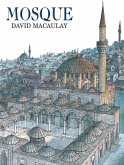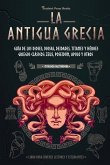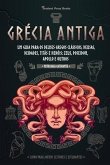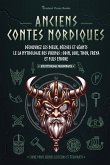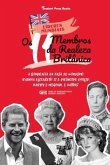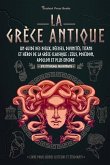The collection contains historical fiction, memoirs and poems covering 100 years of Ukrainian history, written by Ukrainian-Canadian writers from Quebec, Ontario and Western Canada. The contributors are all part of a circle of writers that Skrypuch met or mentored through an internet-based writers' group that she set up. The group's members, both established authors and novices, read and critiqued each others' works. Among the authors whose work appear in "Kobzar's Children" with Marsha Skrypuch are: Award-winning author Larry Warwaruk, whose contribution "Bargain," set in Saskatchewan, is based on a true story, The Winnipeg-born and -based Brenda Hasiuk whose fiction has been published in leading literary journals. Her contribution to the collection, "It's Me Tatia," is set in Western Canada in 1919, Paulette MacQuarrie, a freelance editor and producer of the English-language Ukrainian radio program, Nash Holos, in British Columbia, Poems by Linda Mikolayenko, from Ethelbert, Manitoba, and Sonja Dunn, who has worked in television for almost 30 years, and A high school student from Quebec, Kim Pawliw, who wrote a tribute to her Baba who, as a child was imprisoned with her family at the Spirit Lake Internment Camp. "The Many Circles of Hell," by Stefan Petelycky, a Ukrainian survivor of Aushwitz who now lives in British Columbia, is undoubtedly the most horrific story in the collection. Petelycky vividly describe the barbaric treatment suffered by him and his fellow former prisoners, many of them Ukrainians. Due to more mature content, this book is recommended for children 14 and up.
Due to more mature content, this book is recommended for children 14 and up. The Kobzars were the blind minstrels of Ukraine, who memorized the epic poems and stories of 100 generations. Traveling around the country, they stopped in towns and villages along the way, where they told their tales and were welcomed by all. During the early years of Stalin's regime in the USSR, the Kobzars wove their traditional stories with contemporary warnings of soviet repression, famine, and terror. When Stalin heard of it, he called the first conference of Kobzars in Ukraine. Hundreds congregated. Then Stalin had them murdered. As the storytellers of Ukraine died, so too did their stories. Kobzar's Children is an anthology of short historical fiction, memoirs, and poems written about the Ukrainian immigrant experience. The stories span a century of history from 1905 to 2004; and they contain the voices of people who lived through internment as "enemy aliens," homesteading, famine, displacement, concentration camps, and this new century's Orange Revolution. More than a collection, it is a social document that revives memories once deliberately forgotten. - Century of untold stories - Touches on all major points of Ukrainian history - Supported by the Shevchenko Foundation The collection contains historical fiction, memoirs and poems covering 100 years of Ukrainian history, written by Ukrainian-Canadian writers from Quebec, Ontario and Western Canada. The contributors are all part of a circle of writers that Skrypuch met or mentored through an internet-based writers' group that she set up. The group's members, both established authors and novices, read and critiqued each others' works. All royalties from the sale of this book will be donated to the Ukrainian Canadian Civil Liberties Association.
Due to more mature content, this book is recommended for children 14 and up. The Kobzars were the blind minstrels of Ukraine, who memorized the epic poems and stories of 100 generations. Traveling around the country, they stopped in towns and villages along the way, where they told their tales and were welcomed by all. During the early years of Stalin's regime in the USSR, the Kobzars wove their traditional stories with contemporary warnings of soviet repression, famine, and terror. When Stalin heard of it, he called the first conference of Kobzars in Ukraine. Hundreds congregated. Then Stalin had them murdered. As the storytellers of Ukraine died, so too did their stories. Kobzar's Children is an anthology of short historical fiction, memoirs, and poems written about the Ukrainian immigrant experience. The stories span a century of history from 1905 to 2004; and they contain the voices of people who lived through internment as "enemy aliens," homesteading, famine, displacement, concentration camps, and this new century's Orange Revolution. More than a collection, it is a social document that revives memories once deliberately forgotten. - Century of untold stories - Touches on all major points of Ukrainian history - Supported by the Shevchenko Foundation The collection contains historical fiction, memoirs and poems covering 100 years of Ukrainian history, written by Ukrainian-Canadian writers from Quebec, Ontario and Western Canada. The contributors are all part of a circle of writers that Skrypuch met or mentored through an internet-based writers' group that she set up. The group's members, both established authors and novices, read and critiqued each others' works. All royalties from the sale of this book will be donated to the Ukrainian Canadian Civil Liberties Association.

